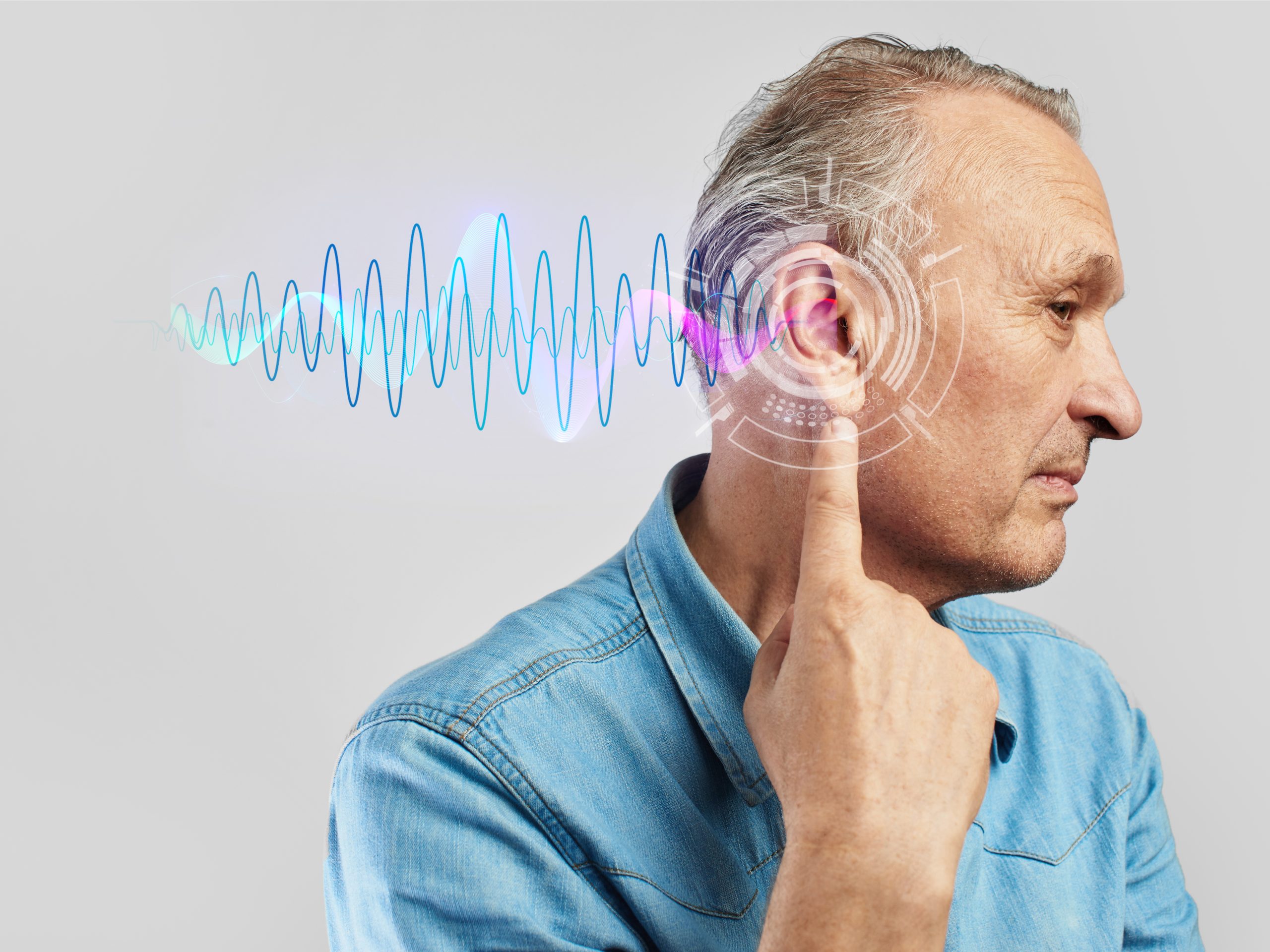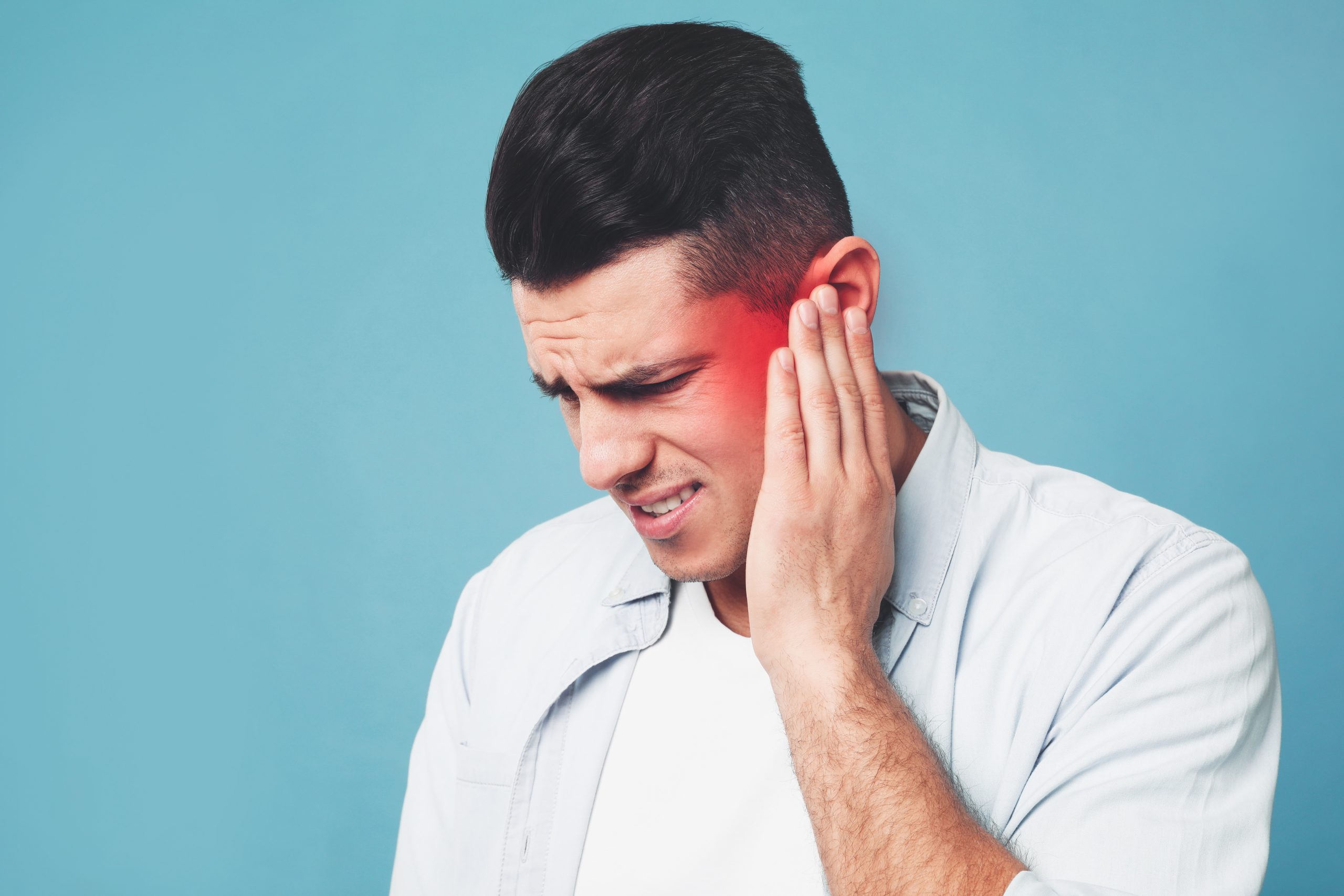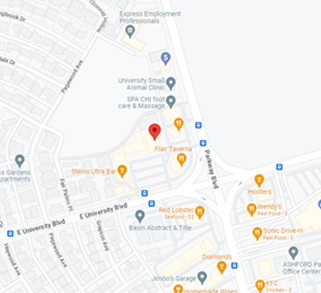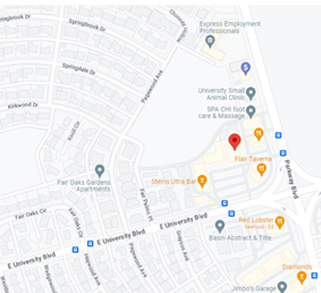One of the most common forms of sensorineural hearing loss is high-frequency hearing loss, which primarily affects elderly individuals and those exposed to loud noises for extended periods. Bird chirping, female or child voices, and consonants like “s,” “f,” and “th” are all difficult to hear. Fortunately, cutting-edge hearing aids designed specifically for high-frequency amplification have successfully made it possible to address this problem, thanks to current technology.
If you have been diagnosed with this condition following a hearing test in Waco, TX, the next step is to look into the best high-frequency loss hearing aids that fit your particular hearing profile. At Roger Clark Hearing, we assist patients in locating the best hearing aids for high-frequency loss to improve everyday communication and regain clarity.
What Causes High-Frequency Hearing Loss
High-frequency hearing loss has several underlying causes, many of which take time to manifest. Among the most prevalent are
Aging (Presbycusis) – As we age, the inner ear’s hair cells that pick up high-pitched noises start to break down.
Noise Exposure – Long-term exposure to loud noises, such as those from concerts, machinery, or construction sites, can cause irreversible damage to the sensory cells in the inner ear.
Genetics – Some people have a genetic predisposition to high-tone hearing issues.
Ototoxic Drugs – Several antibiotics, chemotherapy medications, and diuretics may harm the auditory system.
Illness or Infection – Inner ear conditions and viral infections can also cause this hearing loss.
The Impact of High-Frequency Hearing Loss
High-frequency hearing loss can greatly impact communication and general quality of life. Particularly in noisy settings, people with this disease frequently remark that they can “hear but not understand” conversations.
This disorder has the following effects on daily life.
Speech Clarity – It might be difficult to hear speech when consonants like “s,” “f,” and “t” are difficult to determine
Social Withdrawal – People may ignore social events because of frustration or shame over misinterpreted conversations.
Safety Concerns – Missing high-pitched noises like sirens, alarms, or electronic signals might be risky.
Emotional Health – Stress, anxiety, and even despair are associated with hearing impairments.
Professionals conduct thorough exams at a reputable Waco hearing center like Roger Clark Hearing to identify the hearing aids frequency range most appropriate for your condition. This ensures that high-frequency sounds become clearer and more comfortable.
Choosing the Right Hearing Aid
The degree of your hearing loss, lifestyle, and preferred technology level all play a role in choosing the finest hearing aids for high-frequency loss. Thankfully, there are many cutting-edge hearing aid alternatives made especially for high-tone hearing issues.
Here are some of the features:
Technology for Reducing Frequency: This novel function ” shifts ” high-frequency noises to a lower, more audible range. It enables users to hear speech sounds like “s” and “th” that they might otherwise miss.
Microphones with Direction: These emphasize front-facing speech while lowering background noise, improving the clarity and comfort of discussions.
Reduction of Digital Noise: This feature helps you concentrate on what really matters—speech and meaningful sounds—by automatically filtering out unwanted noise.
Bluetooth Linkage: Connecting many contemporary hearing aids to computers, TVs, and cell phones allows you to stream calls, music, and video straight to your gadgets.
Batteries that Recharge: With energy-efficient rechargeable choices, the trouble of changing batteries is eliminated.
Treatment Options for High-Frequency Hearing Loss
Although hearing aids are still the primary treatment for high-frequency loss, several additional options exist for maintenance and treatment.
Hearing Aids – The best hearing aids for high-frequency loss are those that amplify and modify sound according to the findings of your hearing test.
Assistive Listening Devices (ALDs) – Personal FM systems and amplified phones might be helpful in some listening situations.
Cochlear Implants – Cochlear implants may benefit severe or profound hearing loss by directly stimulating the auditory nerve.
Auditory Training – Listening exercises and rehabilitation programs can help your brain adjust to the new sound patterns that your hearing aids produce.
Lifestyle Modifications – Lowering background noise, preserving in-person interactions, and enhancing space acoustics can facilitate communication.
At Roger Clark Hearing, we develop individualized treatment programs based on your diagnostic hearing test results in Waco, Texas, ensuring that each option improves your hearing experience.
Prevention and Protection Tips
It’s never too late to preserve your residual hearing, even if you already have some degree of hearing loss. Here are some doable strategies to protect your hearing.
Reduce Noise Exposure – In noisy settings, wear earmuffs or earplugs.
Volume Control – Control the volume of your personal audio devices by keeping them at safe listening levels (no more than 60% of maximum loudness).
Frequent Hearing Tests – To identify early changes in your hearing, schedule yearly tests at your neighborhood Waco hearing center.
Healthy Lifestyle – To enhance ear health, stay active, keep blood flowing, and abstain from smoking.
Prevent Ototoxic Substances – Consult your doctor before taking any drugs that are known to damage the inner ear.
Roger Clark Hearing – Your Go-To Source for Better Hearing
We at Roger Clark Hearing know the difficulties associated with high-frequency hearing loss. Our goal is to provide you with individualized hearing solutions and compassionate care so that you can rediscover the world of sound. Our staff can assist you at every stage, whether you require a hearing test in Waco, TX, or professional guidance on selecting the best high-frequency loss of hearing aid.
We provide:
- Extensive diagnostic testing for hearing
- Advanced programming and fitting of hearing aids
- Ongoing maintenance and monitoring services
- Professional advice and instruction for the maintenance of hearing
Don’t let hearing issues with high tones stop you. Stop by our reputable Waco hearing center to discover the newest technology and customized hearing treatments that make a difference.
FAQs
How does high-frequency hearing loss manifest initially?
Common symptoms include missing high-pitched sounds like birds or alarms and having trouble understanding speech, particularly in noisy settings.
Is it possible to treat high-frequency hearing loss?
Due to damage to the inner ear hair cells, this disorder is typically irreversible. However, speech comprehension and sound clarity can be greatly enhanced with hearing aids and other assistive technologies.
Are all hearing aids appropriate for people with high-frequency loss?
No. The most effective high-frequency loss hearing aids address the particular difficulties of this condition by utilizing cutting-edge features like digital sound processing and frequency lowering.
How can I determine the frequency range of a required hearing aid?
Roger Clark Hearing will perform a professional hearing test in Waco, TX, to ascertain your precise hearing thresholds and suggest equipment that meets your frequency requirements.
How frequently should my hearing be examined?
Adults should have their hearing checked every year, particularly if they are over 50 or regularly around loud noises. Early detection ensures prompt treatment and protection









